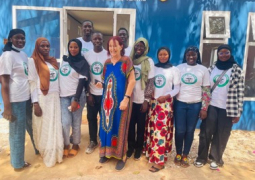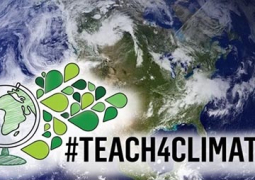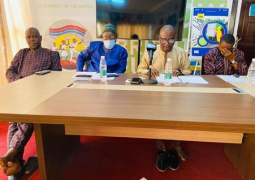Governments in Africa should step up financial support to young people, according to a policy brief co-launched in Ghana by the Commonwealth and Africa Union Commission (AUC).
The brief, entitled ‘Africa’s Future - Youth and the Data Defining Their Lives’, was developed with support from the Population Reference Bureau and launched at the Commonwealth meeting of senior youth officials in the capital Accra.
The document drew on data from the Status of African Youth Report (SoAY), released earlier this year by the AUC in conjunction with the Commonwealth.
The analysis is designed to provide a regional overview of the status of young people in Africa and prompt conversations around inclusive youth development across the continent.
Addressing the meeting, Commonwealth’s director of economic, youth and sustainable development, Pamela McLaren, said: “Among our Commonwealth regions, Africa has by far the youngest youth population.
“In 2018, there were over 2.5 billion people between the ages of 15 and 35 worldwide, of which 453 million live in African Union (AU) countries.
“In other words, Sub-Saharan Africa will make up a bigger share of the world’s youth population in coming decades, a trend that will have important implications for economic growth and socio-political stability in the region.
“In an ageing world, a growing labour force is a highly valuable asset that can help drive growth and reduce poverty.”
The brief recommended creating youth policies and programs at regional, national and local levels using findings to include programs for disadvantaged and marginalized young people.
Hailed as a study led by young people for young people, the SOAY report makes a case for further substantial investment in young people based on AUC’s five key demographic dividends:
- Youth Employment and Entrepreneurship
- Youth Education and Skills Development
- Youth Health and Well-Being
- Youth Rights, Governance and Empowerment
- Enabling Environment.
Prudence Ngwenya, Head of Human Resource and Youth Development at the AU said: “Given that many information gaps around the experiences of young people persist, African policymakers, youth leaders, nongovernmental organizations, and researchers can work together to improve the quality and quantity of data and evidence around African youth development.
“So the SoAY report basically is also aimed at helping stakeholders identify responsive and innovative strategies aligned to the four pillars of youth development - as well as ensuring an enabling environment for youth development.”
She added: “We are also employing lessons learned from the Commonwealth’s previous work on research and data on youth development.”
The Commonwealth’s Youth Development Index will be presented at CHOGM 2020 in Rwanda. It will monitor progress on youth development across 183 countries.





